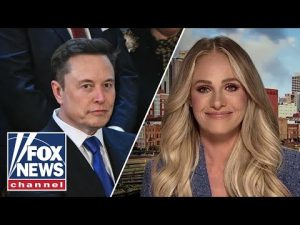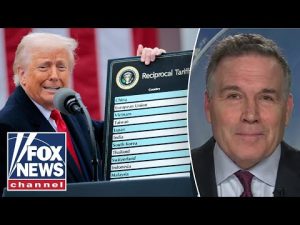In the world of politics, controversy and intrigue are never too far away. Currently, Washington is teeming with whispers and speculation surrounding President Joe Biden and the potential mismanagement of his Article Two powers. The latest buzz revolves around the notion that someone else might have operated the proverbial “auto pen,” possibly suggesting an unsettling level of delegation of presidential duties. Naturally, conservative voices are raising the alarm, drawing parallels to another era when Edith Wilson, Woodrow Wilson’s wife, was said to have taken on many of her husband’s responsibilities after his debilitating stroke. Drawing these comparisons adds a historical context that certainly raises eyebrows.
In particular, Senator Rand Paul, known for his staunch constitutionalism, has his sights set on unearthing the truth. His concerns highlight a broader issue: if someone else is indeed running the show from behind the scenes, it not only raises legality questions but suggests a catastrophic breakdown in presidential authority. The theory is that whoever was behind the auto pen would be the key to understanding what’s going on, and if the chain of command leads to the President—or skirts dangerously close—there could be serious repercussions for all involved. After all, sidestepping the Constitution is no small matter.
The scenario becomes even more tangled when considering the role of the First Lady, Jill Biden, whose alleged involvement seems rooted in speculation combined with historical precedence. Whether fair or not, the mere suggestion of her wielding such influence evokes reactions ranging from shock to resignation. After all, many remember that other presidents have leaned heavily on their spouses, but introducing elements of secrecy and potential bypassing of the president’s powers is a different ball game entirely. Such an implication is ripe for investigation, even if the road to clarity might be fraught with procedural and legal hurdles.
And then there’s the interview with Special Counsel Robert Hur, which seems to further muddy the waters. According to conservatives, the interview portrays President Biden as potentially incompetent to fulfill the duties everyone expects from a leader. The fact that discussions about competency are even taking place is extraordinary—it not only raises questions about the current administration but reflects poorly on those who shielded and supported it. By suppressing crucial information, whether to save face or prevent public outcry, these folks didn’t just commit a disservice—they actively participated in misleading the nation.
Lastly, the stakes are unlike anything faced in previous eras. In the nuclear age, the president’s competence is not merely procedural trivia but a matter of global security. Should these allegations hold any weight, the responsibility falls on Congress to uncover the truth about who was really in charge of critical decisions. With the nuclear football never far from the president, the implications of an incompetent commander-in-chief, backed by a possibly complicit media, have never been more concerning. This isn’t just about politics; it’s about ensuring that the person holding the highest office is fit to carry out its monumental responsibilities. The call for transparency and accountability rings louder than ever, demanding answers for the American public.







